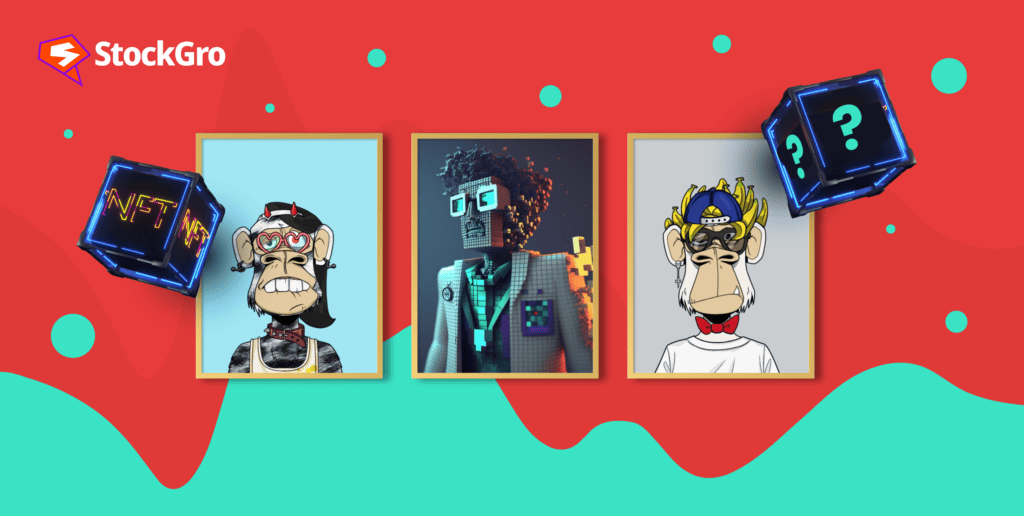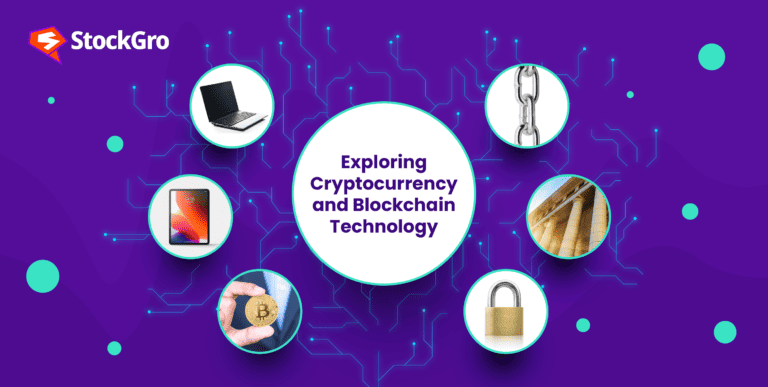
The popularity of non-fungible tokens or NFTs is currently witnessing huge growth, and for good reasons. You can trace back its origin to 2017 when it came into existence and became a major addition in the cryptocurrency market. They have gained much traction since then among the collectors. This is because NFTs can be easily traded between people online without facing any authentication issues.
Unlike physical collectibles like comic books or sports cards, non-fungible tokens undergo easy authentication. Moreover, NFTs can be stored on the blockchain network conveniently instead of any physical media such as paper certificates. This helps to ensure higher security for sellers and buyers alike.
Here’s a complete guide to what are NFTs entailing features, benefits and working.
What is a Non-Fungible Token (NFT)?
You may be wondering what are NFTs. NFTs or non-fungible tokens refer to assets that are tokenised using a blockchain. These tokens have a unique identification code that is created using metadata via the encryption function. Then, these tokens are stored on the blockchain wherein the assets get stored in several other places. The unique aspect lies in the connection between the assets and tokens.
You can trade NFTs and exchange them for cryptocurrencies, money and other such NFTs. All of this depends on the value placed on them by owners and the NFT market.
For example, you might sketch a cheerful expression on a banana, snap a photo of it (complete with attached metadata), and encode it as a token on a blockchain. The individual possessing the private keys to that token then holds whatever rights you’ve designated for it.
Cryptocurrencies also function as tokens, but a crucial contrast lies in their fungibility. Unlike two cryptocurrencies from the same blockchain, which are interchangeable, two NFTs originating from the same blockchain may appear identical visually but lack interchangeability.
You may also like: Balancing a full-time job and a side hustle
How is an NFT different from cryptocurrency?
As per NFT definition, they are typically constructed using similar programming as cryptocurrencies such as Bitcoin or Ethereum. However, their resemblance to cryptocurrencies ends there.
Unlike physical money and cryptocurrencies, which are “fungible” and can be freely traded or exchanged with equal value, NFTs operate differently. Each NFT possesses a unique digital signature, rendering them incapable of being exchanged or equated with one another (thus, non-fungible). For instance, a single NBA Top Shot clip cannot be equated to EVERYDAYS solely because they are both NFTs. Moreover, even within the realm of NBA Top Shot clips, one clip may not necessarily hold the same value as another.
Benefits of Non-Fungible Tokens
There are numerous benefits associated with NFTs, including:
- Accessibility: NFTs investment opportunities are open to everyone, making them easily accessible and transferable among individuals worldwide.
- Secure Ownership: NFT ownership is secured by blockchain technology, providing a digital signature that ensures investors’ ownership is protected. Additionally, blockchain technology enhances transparency in ownership.
- Learning Opportunity: Investing in NFTs provides an avenue for investors to gain knowledge about blockchain technology. By diversifying their portfolios and allocating tokens to various assets, investors can learn more about the intricacies of NFT technology.
Features of NFT
- Unlike fungible tokens such as a pound note that can be divided into smaller units like pence while retaining their characteristics, NFTs cannot undergo subdivision without altering their inherent qualities.
- Upon minting an NFT, an entity can transfer ownership to a new entity through sale. However, depending on particular circumstances, smart contract protocols might be employed to impose limitations or halt subsequent token transfers.
- While an NFT possesses specific attributes upon its creation, these attributes can be modified over time through smart contracts, subject to meeting certain conditions. This process resembles a game of ‘pass the parcel,’ where the parcel sheds layers of wrapping each time the music pauses.
How does NFT work?
Now that you know the meaning of NFTs, here you can learn about the working of non-fungible tokens.
- Most NFTs are situated on the Ethereum blockchain, a decentralized public ledger that logs transactions.
- NFTs are distinct tokens containing valuable data within them.
- Due to their value being primarily dictated by NFT market dynamics and demand, NFTs can be traded and purchased akin to physical artworks.
- The distinctive data embedded within NFTs facilitates straightforward verification and validation of ownership, as well as the transfer of tokens among owners.
Also Read: Scaling Your Side Business: Strategies for Growth
Why own NFTs?
The surge in demand for NFT art has been remarkable in recent times. Nevertheless, scepticism persists, largely because NFTs are typically associated with digital files. How does owning an NFT differ from merely having a screenshot of a photo? Does the concept of “proof of ownership” hold any significance? To aid in your decision-making process, here are some key reasons why individuals choose to possess NFTs.
It empowers artists
Frequently, creators are coerced into agreements by publishers, producers, and auction houses that fail to prioritize their interests. However, with NFTs, artists can independently mint and sell their creations, enabling them to preserve intellectual property rights and maintain creative authority. Additionally, artists have the opportunity to earn royalties from subsequent sales of their work.
In this regard, NFTs hold the promise of establishing more equitable models by avoiding the gatekeepers who presently dominate creative sectors. Many individuals purchase NFTs as a means of empowering and financially backing the creators they admire.
Collectability
For individuals seeking to gather a compilation of digital assets, NFTs offer an unparalleled opportunity that has not been accessible outside traditional NFT collectibles and art markets before.
Investment
Certain NFT owners seek assets that appreciate in value, treating NFTs as investments akin to traditional art. While the visibility and accessibility of the digital image may appear unusual to some, it’s crucial to note that only one owner can possess the NFT. This exclusivity suffices for some individuals. However, the considerable market fluctuations render NFT investment a high-risk endeavour, with the possibility of significant losses.
Community
NFT ownership also offers social advantages, as numerous creators have transformed their NFT endeavours into thriving communities. Collectors gain entry to a members-only Discord server, access to exclusive merchandise, voting rights in shaping the project’s future, invitations to virtual gatherings, and additional perks. Consequently, for many collectors, owning an NFT is not only a means of socializing with friends but also a matter of personal identity.
Also Read: Financial Planning for Entrepreneurs
The bottom line
Non-fungible tokens represent an evolution of the cryptocurrency concept. Contemporary financial systems encompass intricate trading and loan mechanisms for diverse asset categories, spanning from real estate to lending agreements to artwork. By facilitating digital representations of assets, NFTs signify a progression in the reformation of this infrastructure.
Indeed, the notion of digital representations of physical assets and the utilization of unique identification is not new. However, when merged with the advantages of a tamper-resistant blockchain equipped with smart contracts and automation, these concepts wield significant transformative potential.

